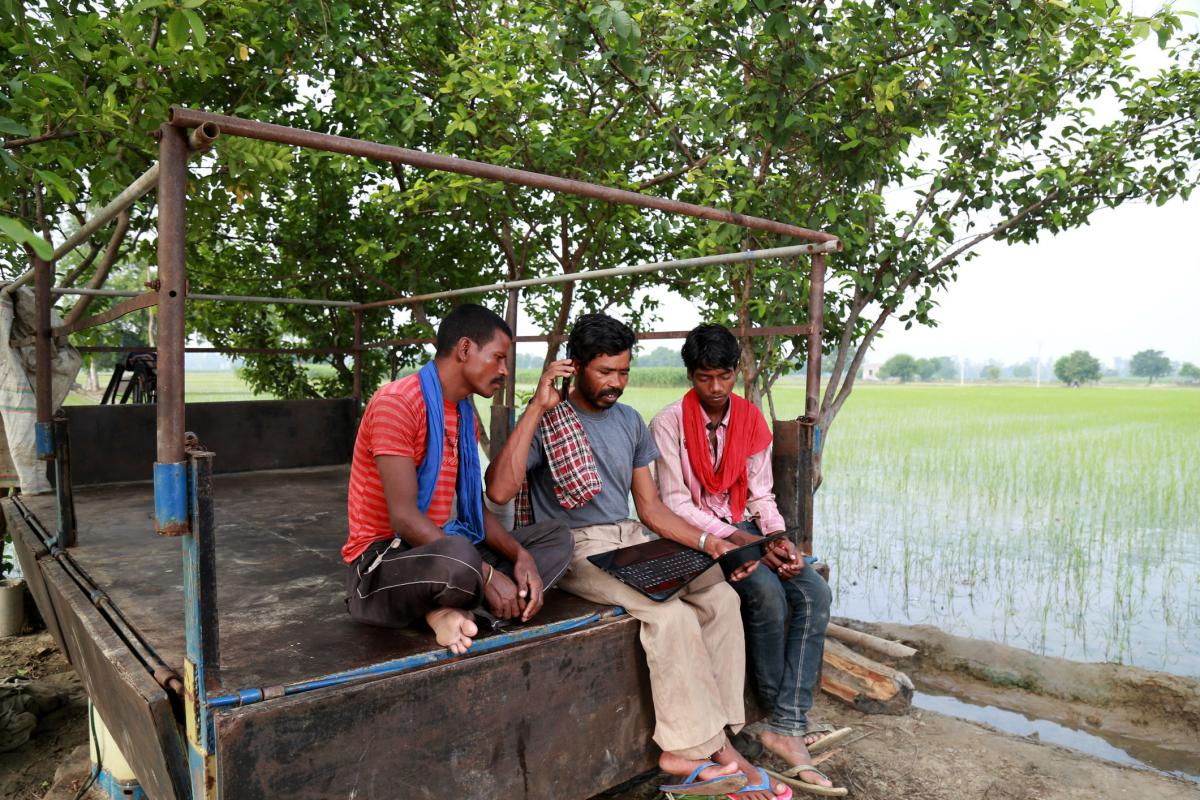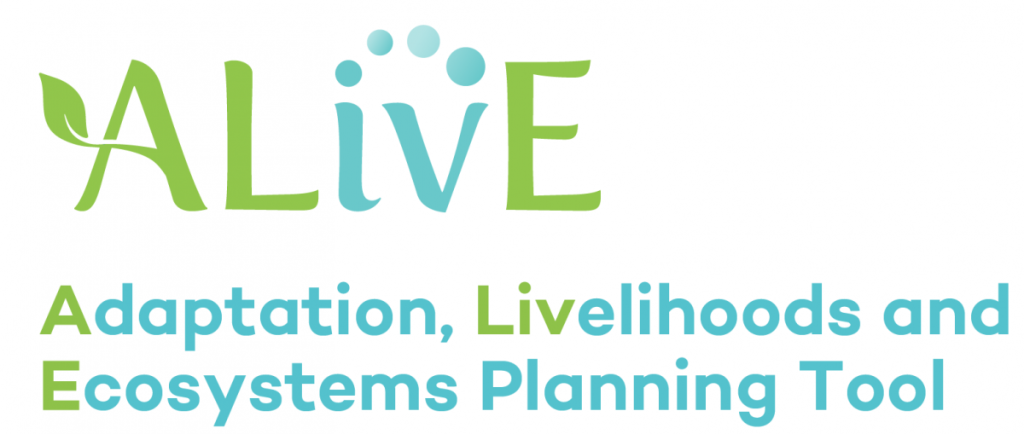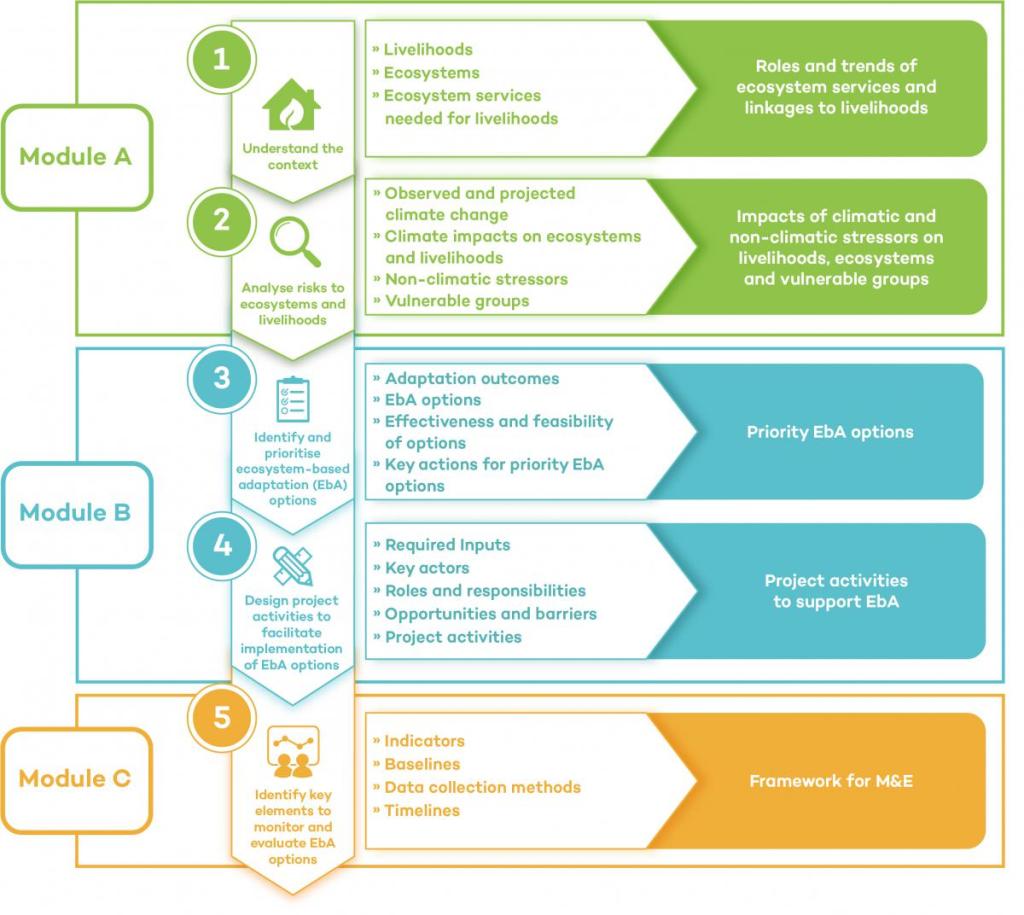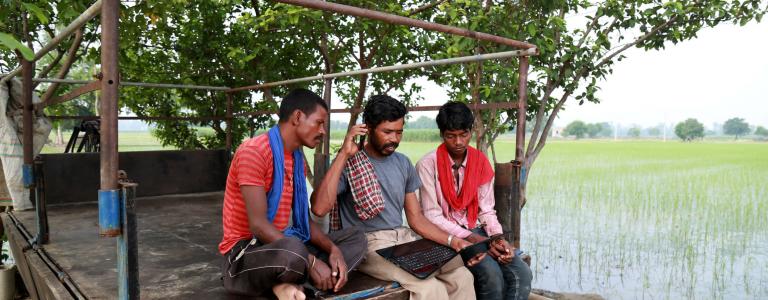ALivE: A new tool for Ecosystem-based Adaptation
There’s an urgent need to prepare ecosystems for climate change impacts. Healthy ecosystems are critical for sustaining livelihoods. They also increase our capacity to adapt to climate change.
There’s an urgent need to prepare ecosystems for climate change impacts. Healthy ecosystems are critical for sustaining livelihoods. They also increase our capacity to adapt to climate change.

As more people recognize this need, an adaptation planning framework that emphasizes ecological health is critical. But what does Ecosystem-based Adaptation (EbA) look like in practice?
The good news is that there have been over 200 EbA projects globally showing promising results. However, early experiences have also revealed that it can be challenging to scale up EbA, and therefore the approach has yet to reach its full potential.
Often, EbA initiatives resemble more traditional conservation projects that may have positive ecological and socioeconomic benefits for adaptation. But with the urgent need to prepare people and ecosystems for climate change impacts, we need such projects to directly address climate risks and vulnerabilities and incorporate current and future climate information to the best of our ability.
This leads to the question: How can we equip people working in the fields of adaptation, conservation and development with the information and guidance they need to design, implement and monitor feasible and effective EbA options?
Under the Ecosystem-Based Adaptation through South-South Cooperation (EbA South) Project, IISD has been collaborating with the International Union for Conservation of Nature (IUCN) to explore these questions and to develop a planning tool to help practitioners find the answers they need. We are excited to launch the result of this collaboration: ALivE – The Adaptation, Livelihoods and Ecosystem Planning Tool.

ALivE is a user-friendly computer-based EbA planning tool to support adaptation practitioners in organizing and analyzing information to plan feasible and effective EbA options.
This tool primarily relies on information collected from desk-based and participatory research processes. ALivE is accompanied by a user-friendly manual that provides step-by-step guidance for the tool and useful support materials for project staff.
“The EbA planning tool is very effective as it takes a step-by-step approach. During the process we were able to understand and visualize what EbA is and why it is important for people, their livelihoods and nature. Particularly, the process of identifying and prioritizing EbA options is very useful, considering multiple criteria and multiple indicators, looking at livelihoods, ecosystems, opportunities, barriers and other factors in one process.”—Anu Adhikari, IUCN Nepal
How does ALivE contribute to more effective adaptation?
To successfully reduce vulnerability to climate change, EbA interventions need a systematic consideration of the complexity of socio-ecological systems and the implications of current and future climate risks and changes for livelihoods and for ecosystem health. ALivE helps users to understand how livelihoods, vulnerable groups and ecosystems are affected by climatic and non-climatic stressors to identify and prioritize effective and feasible EbA options.
Additionally, the tool walks practitioners through the process of designing project activities and elements of a monitoring and evaluation (M&E) framework to support implementation and monitoring of prioritized options, emphasizing the need for adaptive management. It incorporates recognized criteria for EbA effectiveness, which can be applied by non-experts. The tool can be applied in any type of ecosystem.

The development of the ALivE Planning Tool was funded by Ecosystem-based Adaptation through South-South Cooperation (EbA South). AlivE is now publicly available and can be downloaded for free.

You might also be interested in
IISD's Best of 2024: Articles
As 2024 draws to a close, we revisit our most read IISD articles of the year.
IISD's Best of 2024: Publications
As 2024 draws to a close, we revisit our most downloaded IISD publications of the year.
Nations Are Exiting a Secretive System That Protects Corporations—One Country's Story Shows How Hard That Can Be
Bolivia was the first nation to begin leaving a legal system that allows foreign companies to sue governments behind closed doors. Now, other countries are following.
Nine Wins for Sustainable Development in 2024
Looking back on 2024, let’s take a moment to pause and appreciate the positive milestones of the year. Join us in celebrating the small and big wins for global sustainability.
